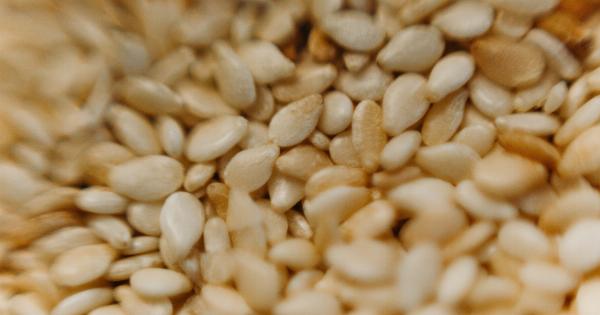Whole grains are an essential part of a healthy diet. They are packed with vital nutrients, fiber, and antioxidants that can help prevent various diseases.
Incorporating whole grains into your daily meals can have significant health benefits and reduce the risk of chronic illnesses. In this article, we will explore the many ways in which whole grains can help prevent diseases.
What are Whole Grains?
Whole grains are the unrefined seeds of plants. Unlike refined grains, which have had their bran and germ removed, whole grains retain these nutritious parts.
This means that they contain all the essential parts of the grain, including the fiber-rich outer layer, the nutrient-dense germ, and the starchy endosperm.
The Nutritional Powerhouse
Whole grains are a nutritional powerhouse. They are rich in complex carbohydrates, protein, fiber, vitamins, and minerals. Let’s take a closer look at some of the key nutrients found in whole grains:.
Fiber:
Whole grains are an excellent source of dietary fiber. Fiber plays a crucial role in promoting digestion, preventing constipation, and maintaining a healthy gut.
It helps regulate blood sugar levels, promotes weight management, and reduces the risk of cardiovascular diseases.
Antioxidants:
Whole grains contain various antioxidants that help protect the body from harmful free radicals.
Free radicals are unstable molecules that can damage cells and contribute to the development of chronic diseases such as cancer, heart disease, and Alzheimer’s disease. Antioxidants neutralize these free radicals, reducing the risk of cell damage.
B Vitamins:
Whole grains are a significant source of B vitamins, including thiamin, niacin, and folate. These vitamins play a crucial role in energy production, brain function, and the formation of red blood cells.
Adequate intake of B vitamins is essential for maintaining overall health and preventing certain birth defects.
Minerals:
Whole grains are rich in essential minerals such as magnesium, iron, and zinc. These minerals are involved in various bodily functions, including bone health, immune system function, and DNA synthesis.
Preventing Heart Disease
Heart disease is the leading cause of death worldwide. However, incorporating whole grains into your diet can significantly reduce the risk of heart disease.
Several studies have shown that people who consume more whole grains have a lower risk of developing heart disease and experiencing heart-related complications.
The fiber content in whole grains helps lower cholesterol levels by reducing the absorption of LDL cholesterol (the “bad” cholesterol) in the bloodstream.
High levels of LDL cholesterol can clog arteries, leading to heart attacks and strokes. Additionally, whole grains contain antioxidants and other compounds that have anti-inflammatory effects, further reducing the risk of heart disease.
Managing Diabetes
Diabetes is a chronic condition characterized by high blood sugar levels. Consuming whole grains can help manage and prevent type 2 diabetes, which is the most common form of diabetes.
The fiber in whole grains slows down the absorption of carbohydrates, preventing sudden spikes in blood sugar levels. This helps maintain more stable blood sugar levels and improves insulin sensitivity.
Whole grains also provide a steady source of energy, keeping you fuller for longer periods and reducing the temptation to consume unhealthy snacks.
Several studies have linked a higher intake of whole grains to a lower risk of developing type 2 diabetes.
The combination of fiber, essential nutrients, and antioxidants in whole grains makes them an excellent choice for individuals at risk of diabetes or those already managing the condition.
Weight Management and Digestive Health
Whole grains can be beneficial for weight management and promoting digestive health. The high fiber content in whole grains helps regulate appetite, promoting satiety and reducing overeating.
By keeping you fuller for longer, whole grains can aid in weight loss and prevent obesity.
Fiber also promotes regular bowel movements, preventing constipation and promoting a healthy digestive system. A diet rich in whole grains can provide relief from digestive issues such as bloating, gas, and cramping.
Preventing Cancer
Studies have suggested that consuming whole grains can reduce the risk of certain types of cancers, including colorectal cancer.
The fiber in whole grains binds to potential carcinogens, preventing them from coming into contact with the cells in the colon. Additionally, the antioxidants present in whole grains help neutralize free radicals, which can contribute to cancer development.
While more research is needed in this area, incorporating whole grains into your diet can be a positive step towards reducing the risk of cancer.
Boosting Immune Function
A strong immune system is essential for fighting off infections and maintaining overall health. Whole grains contain vitamins and minerals that support immune function.
One particular mineral found in whole grains, zinc, plays a crucial role in immune system regulation. Zinc helps activate immune cells and strengthens the body’s defense mechanisms against infectious diseases.
Consuming whole grains can provide an adequate intake of zinc and boost your immune system.
Improving Brain Health
Proper nutrition has a significant impact on brain health and cognitive function. Whole grains contain nutrients that support brain health and may help prevent age-related cognitive decline.
Several B vitamins found in whole grains, such as thiamin, niacin, and folate, are essential for brain function and the production of neurotransmitters. These vitamins help support memory, focus, and overall cognitive performance.
Conclusion
Incorporating whole grains into your diet can have numerous health benefits.
From preventing heart disease and managing diabetes to promoting weight management and boosting immune function, the nutrients and fiber in whole grains play a crucial role in maintaining overall health and preventing various diseases. By making simple swaps in your diet, such as opting for whole grain bread, pasta, or cereals instead of refined alternatives, you can enjoy the many advantages that whole grains offer.





























